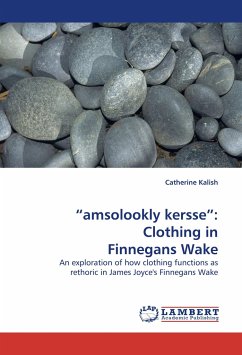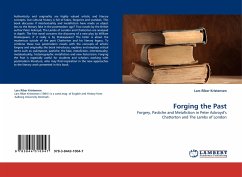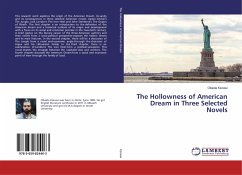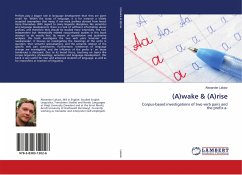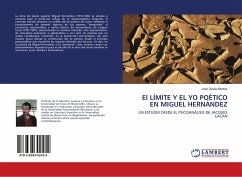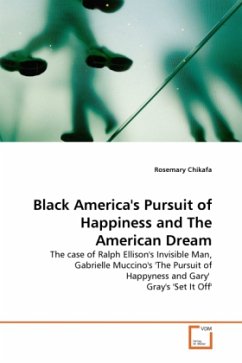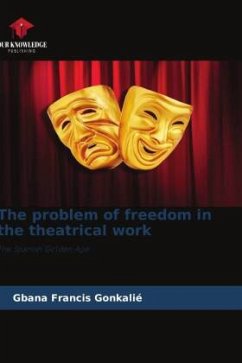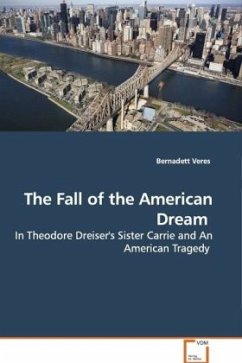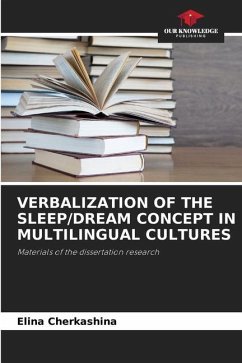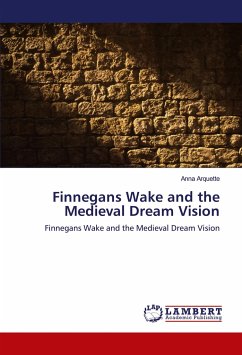
Finnegans Wake and the Medieval Dream Vision
Finnegans Wake and the Medieval Dream Vision
Versandkostenfrei!
Versandfertig in 6-10 Tagen
32,99 €
inkl. MwSt.

PAYBACK Punkte
16 °P sammeln!
This thesis is about reading James Joyce's Finnegans Wake as if it were a medieval dream vision and what that reveals. Defined and explored within this thesis are the four basic elements of the dream vision: dreamer, consoler, dream conflict, and frame. Each element is examined to see what it brings to and how it pertains to Finnegans Wake. It considers the possibility and complexities of a single dreamer with four facets. It reveals how Joyce uses Celtic tradition fused with Christian belief to create a three-part Irish personification for the consoler. It considers the possible universal tru...
This thesis is about reading James Joyce's Finnegans Wake as if it were a medieval dream vision and what that reveals. Defined and explored within this thesis are the four basic elements of the dream vision: dreamer, consoler, dream conflict, and frame. Each element is examined to see what it brings to and how it pertains to Finnegans Wake. It considers the possibility and complexities of a single dreamer with four facets. It reveals how Joyce uses Celtic tradition fused with Christian belief to create a three-part Irish personification for the consoler. It considers the possible universal truths, which Joyce suggests about humanity through the dreamer's conflict, and also reveals how he uses the dream vision frame to enhance this universal truth. The explorations of these four elements allow the reader a clear understanding as to how Joyce, through using a medieval literary form made an entirely modern work, but also one that was essentially Irish to its core. Most importantly this thesis reveals that like medieval poets and their dream visions, James Joyce's dream vision, Finnegans Wake, was written about and for the everyman.



